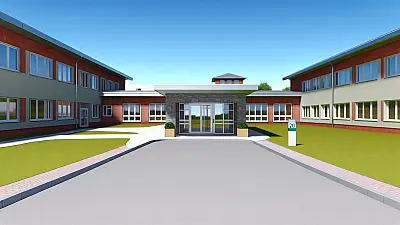CENTER, MO - State inspectors found that Westview Nursing Home failed to maintain current care plans for residents due to staffing changes that left critical coordination roles unfilled, according to a health inspection conducted on May 21, 2025.

Care Plan Updates Delayed by Remote Work Transition
The most significant violation identified during the inspection involved the facility's failure to keep resident care plans updated to reflect current medical needs and conditions. Care plans serve as essential roadmaps that guide daily treatment, medication administration, and therapeutic interventions for each resident.
According to the inspection report, the facility's Director of Nursing (DON) and interdisciplinary team held responsibility for maintaining these critical documents. However, the Administrator acknowledged that care plans were not being updated because the MDS Coordinator now worked remotely and was not present at the facility.
The MDS (Minimum Data Set) Coordinator plays a crucial role in nursing home operations, conducting comprehensive assessments of residents' physical, mental, and psychosocial functioning. These assessments directly inform individualized care plans that must be regularly updated as residents' conditions change.
Impact of Remote Coordination on Patient Care
When the MDS Coordinator worked on-site, the Administrator explained, the process functioned more effectively because "she was here for morning meetings and care plan meetings." The transition to remote work created a communication gap that prevented timely updates to resident care documentation.
Outdated care plans can have serious medical consequences. These documents contain vital information about medication regimens, dietary restrictions, fall risk assessments, wound care protocols, and behavioral interventions. When care plans don't reflect current conditions, staff may continue following outdated instructions that could be inappropriate or potentially harmful.
For example, a resident's fall risk status might change due to new medications or declining mobility, requiring updated prevention strategies. Similarly, wound care protocols must be modified as healing progresses or complications develop. Without current care plans, nursing staff lack the most recent clinical guidance needed to provide safe, effective care.
Regulatory Requirements for Care Plan Management
Federal nursing home regulations require facilities to develop comprehensive care plans within seven days of admission and update them whenever residents experience significant changes in condition. The interdisciplinary team, which typically includes nurses, social workers, dietary staff, and therapy professionals, must collaborate to ensure care plans remain accurate and relevant.
The facility's Administrator indicated that the DON and Assistant Director of Nursing (ADON) were "working on slowly getting the care plans updated" following the loss of in-house MDS coordination. However, this gradual approach to addressing the deficiency suggests that some residents may have continued receiving care based on outdated information.
Medical Standards and Best Practices
Industry standards emphasize that care plan updates should occur promptly when residents experience changes in medical status, cognitive function, or physical capabilities. Delays in updating these documents can compromise the quality and safety of care delivery.
Effective care plan management requires consistent oversight and regular review cycles. Many facilities conduct weekly interdisciplinary meetings to discuss resident changes and update care plans accordingly. When key personnel work remotely, facilities must establish alternative communication protocols to maintain this essential function.
The nursing home industry has increasingly adopted remote work arrangements for certain administrative positions, particularly following the COVID-19 pandemic. However, facilities must ensure that remote work policies don't compromise core clinical functions like care plan coordination.
Facility Response and Corrective Measures
The inspection findings indicate that Westview Nursing Home recognized the issue and was taking steps to address the care plan updates. The Administrator's acknowledgment of the problem suggests awareness of the need for improved coordination between remote staff and on-site clinical teams.
The violation was classified as causing "minimal harm or potential for actual harm" and affected "few" residents. This classification indicates that while the deficiency was significant from a regulatory compliance standpoint, inspectors did not identify immediate threats to resident safety.
Moving forward, the facility will need to demonstrate that all resident care plans have been brought current and establish sustainable processes for maintaining updated documentation regardless of staffing arrangements. This may involve implementing new communication protocols, scheduling regular virtual meetings, or restructuring responsibilities among on-site staff members.
The inspection highlights the importance of maintaining robust clinical oversight systems that can adapt to changing operational circumstances while preserving the quality and safety of resident care.
Full Inspection Report
The details above represent a summary of key findings. View the complete inspection report for Westview Nursing Home from 2025-05-21 including all violations, facility responses, and corrective action plans.
💬 Join the Discussion
Comments are moderated. Please keep discussions respectful and relevant to nursing home care quality.